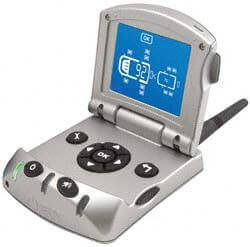 Under-inflation and over-inflation of your RV's tires are issues that can affect not only your own safety, but the safety of those sharing the road with you. It's always important to make sure your tires are properly inflated, whether you often use your motorhome or not, and especially before a big road trip. Tires naturally lose air pressure over time, but other things, such as the temperature, can affect them as well. Keep in mind that the correct tire pressure needs to take into account the weight of your RV when it's fully loaded, including you and all your gear.
Driving with under-inflated tires can be the cause of several problems. For one thing, it increases the risk of tire blowouts, which can cause accidents. Bits of tire and debris can land in the road in the path of other drivers. Accidents caused by a blowout are your responsibility and while your insurance may cover the cost, there can also be fines. The blowout can also damage the fender, the vehicle's undercarriage and tanks. Even with properly inflated tires, your RV already stops much more slowly than a car. Incorrectly inflated tires can significantly decrease your ability to stop quickly. When tires are underinflated, it wears out the treads more quickly and decreases the lifespan of the tire. It also has an affect on your coach's fuel efficiency. According to
fueleconomy.gov, "Under-inflated tires can lower gas mileage by 0.3% for every 1 psi drop in pressure of all four tires." If your vehicle has more than four tires, the fuel efficiency drops even further. Filling up a gas tank can be expensive, so having tires that are properly inflated can help save you money.
Over-inflated tires can be just as much of a problem as under-inflated tires. The decreased surface area that touches the road makes the tire more susceptible to debris or imperfections in the road surface. They are much more sensitive, which can lead to a rougher ride. Sometimes the weight of your rig may be too much for an over-inflated tire to handle, causing a blowout. It also causes incorrect wear on the treads, which like under-inflation, decreases the tire's useful life and makes them more prone to damage.
A tire pressure monitoring system (TPMS) can alert you to incorrect tire pressures before an accident ruins your vacation. Proper tire pressure isn't something you can easily see or estimate visually. There are several direct systems available for RVs that use sensors to give accurate readings in real time. A TPMS should also be able to accommodate all the tires for your rig, while also sending out an audio alarm to give you an immediate warning if a problem is detected. Some, like the Doran and TireMinder systems, also give temperature readings for the tire, to let you know if a problem is causing the tire to overheat. The Doran models have other features including a high pressure warning, and a FastLeak Alert to tell you if the pressure drops suddenly. TireMinder will warn you of potential blow-outs, to increase safety and give you added peace of mind. The Hopkins nVision is designed with RVs and towed trailers in mind. It can support up to 24 tires at once and is transferred easily between vehicles. It alerts you to incorrect tread wear that can lead to serious problems.
Feel free to browse our selection of tire pressure monitors, or
contact us if you need help finding the TPMS that is right for your camper.
By Julie T
Reasons Your RV Needs a Tire Pressure Monitoring System
Examples of the TPMS we have available include:
|